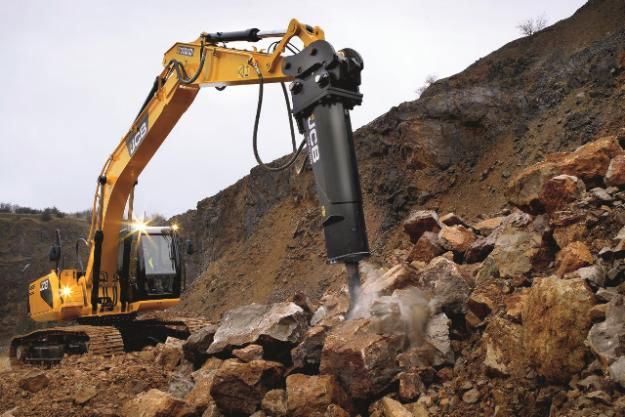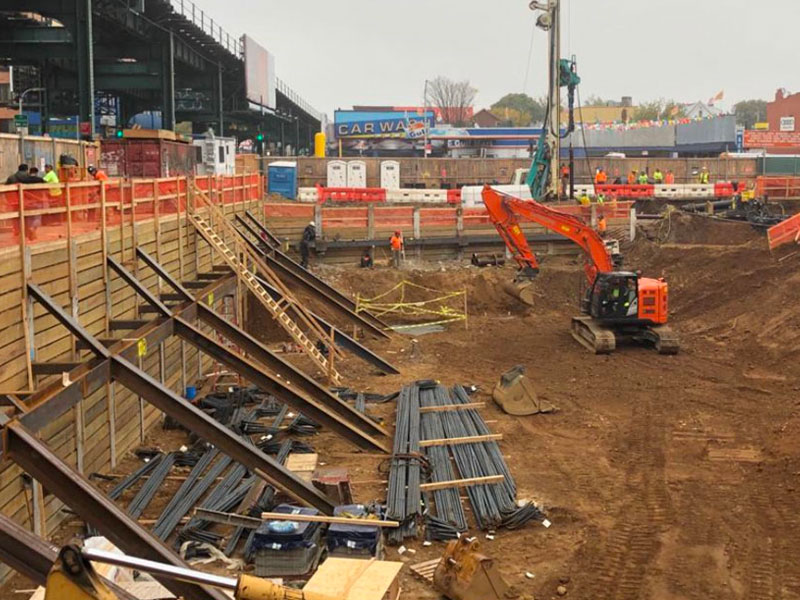Residential Excavating Ohio - Specialized Excavation for Ohio Residences
Residential Excavating Ohio - Specialized Excavation for Ohio Residences
Blog Article
Comprehensive Excavation Methods: Understanding the Basics for Success
The cautious planning, accurate execution, and thorough focus to information needed in excavation jobs demand a comprehensive approach that incorporates various basic facets. The true mastery exists not simply in comprehending these principles yet in effortlessly integrating them to navigate the intricacies of excavation tasks with skill.
Understanding Excavation Project Preparation

The first stage of any excavation task is the planning phase, where essential decisions are made that can substantially affect the end result of the task. Recognizing the task extent, spending plan, and timeline restraints is essential for producing an extensive excavation plan that makes sure the job's success.
One secret aspect of excavation project planning is the development of a comprehensive timeline that details the series of landmarks, tasks, and target dates. This timeline functions as a roadmap for the job team, allowing them to track progression and make essential modifications to make sure the job stays on timetable. Furthermore, a well-defined spending plan that makes up all costs, including equipment service, labor expenses, and materials, is essential for staying clear of expense overruns and delays. By meticulously taking into consideration all these elements throughout the preparation stage, excavation tasks can be performed efficiently and properly, causing successful results.
Dirt Analysis and Site Examination
Conducting detailed soil analysis and website evaluation is an essential action in the prep work stage of any excavation job. Soil evaluation includes establishing the make-up, structure, and properties of the soil at the excavation site. This info is vital for understanding the soil's bearing capability, wetness web content, and potential for erosion, which are essential aspects in establishing the excavation approaches and equipment required for the job.
Site examination goes past dirt evaluation and incorporates a more comprehensive assessment of the general site conditions. This evaluation consists of identifying any potential risks, such as below ground energies, ecological issues, or unstable terrain, that can affect the excavation process. By completely assessing the site, job supervisors can develop effective excavation strategies that prioritize security, efficiency, and environmental protection.
Making use of innovative innovations like ground-penetrating radar, dirt sampling, and drone surveys can enhance the precision and performance of dirt evaluation and site evaluation. Investing time and sources in these preliminary actions can inevitably save time and stop pricey hold-ups or issues during the excavation process.
Equipment Selection and Application
Effective excavation jobs depend heavily on strategic devices option and utilization to guarantee optimal performance and performance. Choosing the appropriate equipment for the job is critical in optimizing performance and lessening downtime. Aspects such as the sort of dirt, deepness of excavation, and job extent play a significant duty in determining one of the most appropriate tools for the job at hand.

Along with choosing the proper equipment, correct usage is vital to project success. Operators should be trained to take care of the devices safely and effectively - lancaster excavation. Regular maintenance checks and prompt repair services aid prevent malfunctions and guarantee constant performance throughout the project
Precaution and Rules Conformity
In the world of excavation jobs, prioritizing safety measures and conformity with guidelines is extremely important to making certain a legally sound and protected operational setting. Security steps incorporate a series of methods, consisting of performing complete site assessments, applying appropriate signs and obstacles, and providing ample security training for all personnel associated with the excavation process. Adherence to laws, such as OSHA hop over to here needs in the United States, guarantees that the excavation task satisfies the required criteria to secure workers, spectators, and the surrounding environment.

Tracking Development and Adjusting Strategies
How can predict supervisors properly track the innovation of excavation tasks and adapt their strategies as necessary to maximize results? Tracking progression is important for making sure that excavation tasks remain on track and fulfill deadlines. Task supervisors can use various devices and methods to track progress, such as day-to-day report card, routine site evaluations, and progressed tracking technologies like drones and general practitioners tracking systems. By continuously keeping track of the task's improvement, managers can determine any prospective delays or problems early on and take positive measures to address them.

Verdict
In verdict, grasping the fundamentals of comprehensive excavation strategies is essential for the success of any kind of job. By recognizing job planning, examining soil and website conditions, picking proper equipment, adhering to security laws, and keeping an eye on progress, task managers can make sure a reliable and smooth excavation process. Applying these methods will cause successful results and decrease possible threats or troubles during the excavation job.
The first stage of any excavation job is the preparation stage, where critical decisions are made that can significantly affect the end result of the project. Understanding the job timeline, budget plan, and extent constraints is important for developing a comprehensive excavation plan that makes sure the task's success.
How can project managers successfully track the innovation of excavation projects and adapt their approaches as necessary to optimize outcomes? By carefully checking progression and being willing to adapt strategies, project managers can enhance the overall Read More Here success of excavation jobs.
By comprehending job preparation, examining dirt and website problems, picking ideal equipment, complying with security laws, and checking progression, job managers can guarantee a effective and smooth excavation process.
Report this page